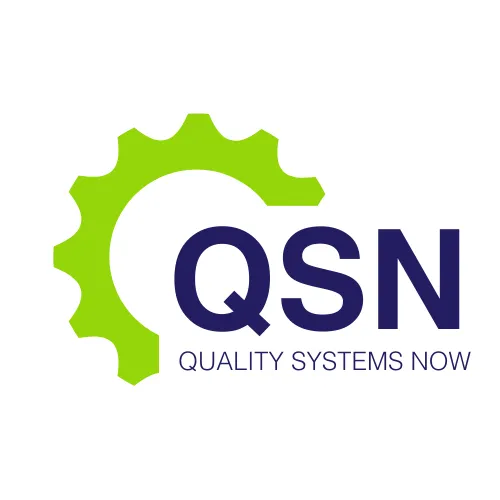NEWS

Upskill Your Staff to Meet Industry Challenges Within GMP and ISO
In the rapidly evolving world of therapeutic goods, biotechnology, and laboratory testing, maintaining compliance with Good Manufacturing Practice (GMP) and International Organization for Standardization (ISO) standards is essential—not optional. Compliance is no longer limited to documentation and inspections; it now requires staff who are competent, adaptable, and capable of integrating regulatory requirements into everyday operations. Upskilling your workforce is therefore a critical strategic priority for manufacturers, testing laboratories, and biotechnology companies seeking to remain competitive, compliant, and innovative.
QSN Academy, the educational arm of Quality Systems Now, has observed that organisations with proactive staff development programs not only reduce compliance risks but also achieve operational efficiencies, higher staff engagement, and faster issue resolution. This article explores why upskilling is vital, the core competencies required within GMP and ISO frameworks, and practical strategies for implementing effective workforce development programs.
The Importance of Staff Competence in GMP and ISO Compliance
GMP and ISO standards, including ISO 13485 for medical devices, ISO 9001 for quality management systems, and the PIC/S Guide for medicines, emphasise the role of personnel competence in achieving product quality and safety. Regulators such as the TGA, FDA, and EMA consistently evaluate whether staff are adequately trained, qualified, and empowered to perform their duties within controlled processes.
Lapses in staff competence are a leading cause of deviations, nonconformances, and inspection observations. These can result in regulatory action, production delays, and reputational damage. Conversely, organisations that invest in continuous learning and competency development demonstrate resilience, agility, and an improved ability to respond to emerging regulatory or operational challenges.
Upskilling is particularly important because regulatory expectations and industry technologies are continuously evolving. From advancements in digital manufacturing and automated quality systems to the integration of artificial intelligence in process monitoring, staff must understand both the scientific and regulatory implications of new technologies. A workforce that is competent in these areas can implement innovations safely while maintaining full compliance with GMP and ISO requirements.
Core Competencies for GMP and ISO Environments
Building staff competence begins with understanding the key skills and knowledge areas required in regulated environments. These include:
1. Regulatory Knowledge and Application
Personnel must understand the principles and practical application of GMP and ISO standards relevant to their role. This includes knowledge of PIC/S guidance for medicines, ISO 13485 for medical devices, and other applicable regulations. Staff should be able to interpret regulatory expectations and apply them in operational decision-making.
2. Risk Management and Quality Systems
Competence in risk management frameworks such as ISO 14971 and ICH Q9 is essential. Staff must be able to identify, assess, and mitigate risks throughout product development, manufacturing, and post-market activities. Understanding the operation of quality management systems—including deviation management, corrective and preventive actions (CAPA), and change control—is critical for maintaining compliance and ensuring product quality.
3. Data Integrity and Documentation Practices
Maintaining accurate, contemporaneous, and traceable records is a regulatory expectation across all GMP and ISO standards. Staff must be trained in best practices for data integrity, electronic and paper-based recordkeeping, and document control processes. Competence in these areas directly impacts inspection outcomes and the organisation’s ability to demonstrate compliance.
4. Technical Skills and Process Understanding
Scientific and technical competence is fundamental. Staff must understand the processes and technologies they operate, from laboratory testing protocols to manufacturing equipment and analytical systems. Upskilling in technical areas ensures that employees can perform tasks reliably, identify anomalies, and respond appropriately to process deviations.
5. Continuous Improvement and Problem-Solving
A culture of continuous improvement is embedded in both GMP and ISO standards. Staff must be equipped to analyse root causes, implement effective CAPAs, and contribute to process optimisation. Competence in critical thinking, problem-solving, and continuous improvement methodologies enhances operational efficiency and regulatory compliance.
Strategies for Effective Upskilling Programs
Developing a workforce capable of meeting regulatory challenges requires a structured and proactive approach to learning. Organisations can implement the following strategies to maximise the impact of upskilling initiatives:
1. Competency Assessment
Begin by assessing current staff competencies against the skills required for GMP and ISO compliance. Identify gaps in knowledge, technical skills, and regulatory understanding. A structured assessment provides a baseline and informs targeted training initiatives.
2. Tailored Training Programs
Develop training programs that address identified gaps and align with organisational objectives. Training should be role-specific, focusing on the practical application of regulatory requirements, quality systems, and technical processes. QSN Academy offers tailored programs for therapeutic goods manufacturers, laboratories, and biotechnology companies that integrate regulatory principles with operational practice.
3. Blended Learning Approaches
Blended learning, combining online modules, workshops, and on-the-job coaching, enhances knowledge retention and ensures skills are applied in real-world settings. Simulation exercises, case studies, and interactive sessions allow staff to practice decision-making in a controlled, learning-focused environment.
4. Continuous Evaluation and Feedback
Regular evaluation of training effectiveness ensures that learning objectives are met. Competency assessments, practical demonstrations, and performance reviews provide measurable evidence that staff can apply skills in compliance-critical processes. Feedback loops help refine training programs and address emerging skill gaps.
5. Embedding Learning into Daily Operations
Upskilling is most effective when integrated into everyday workflows. Encouraging staff to apply new knowledge in real tasks, participate in cross-functional quality activities, and engage in continuous improvement projects reinforces learning and strengthens quality culture across the organisation.
6. Leadership Support and Recognition
Senior leadership must actively support upskilling initiatives, providing resources, time, and recognition for staff development. Visible commitment from management reinforces the importance of competence in achieving compliance, operational excellence, and innovation.
Benefits of Upskilled Staff
Investing in workforce development yields measurable benefits, including:
Faster identification and resolution of deviations and nonconformances
Improved inspection outcomes and regulatory confidence
Enhanced operational efficiency and reduced rework
Increased employee engagement, retention, and accountability
Ability to implement new technologies and regulatory changes effectively
Organisations that prioritise staff competence transform regulatory compliance from a reactive task into a proactive, embedded capability.
The Role of QSN Academy
QSN Academy provides specialised education and training programs for therapeutic goods manufacturers, testing laboratories, and biotechnology companies. Our programs are designed to develop regulatory, technical, and quality system competencies in line with GMP, ISO, and global regulatory expectations. Services include:
Role-specific GMP and ISO training modules
Risk management, CAPA, and quality systems workshops
Technical skills development for laboratory and manufacturing personnel
Customised training programs for organisational needs
Competency assessments and continuous learning plans
By leveraging QSN Academy’s expertise, organisations can upskill staff effectively, enhance quality culture, and improve operational performance.
Conclusion
Upskilling your workforce is no longer optional in GMP and ISO-regulated environments. Competent, knowledgeable staff are critical to achieving compliance, ensuring product quality, and maintaining operational efficiency. Organisations that invest in targeted, structured, and continuous learning programs gain measurable advantages in regulatory readiness, problem resolution, and innovation adoption.
QSN Academy supports therapeutic goods manufacturers, laboratories, and biotechnology companies in developing the competencies necessary to meet industry challenges. By prioritising workforce development, organisations can build a resilient, adaptable, and high-performing team capable of sustaining compliance and driving growth in a complex and evolving regulatory landscape.
